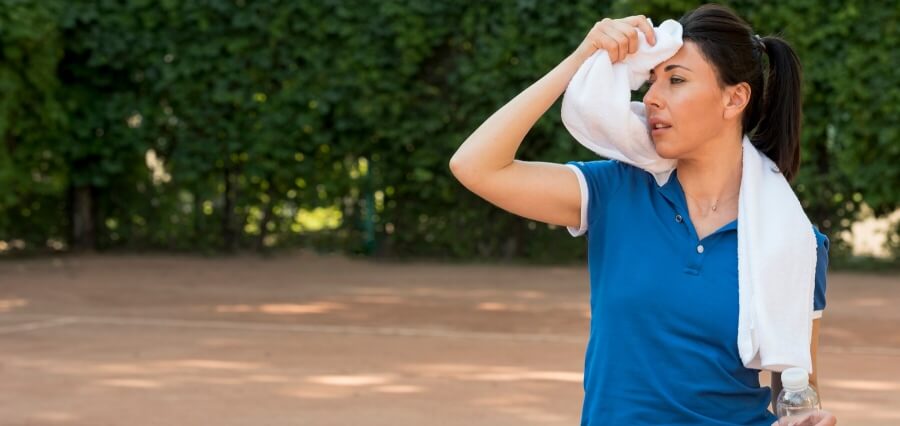If someone sustains a concussion, there’s no guarantee it will impact them in the long term. However, there’s also no guarantee that it won’t. Concussions aren’t the most predictable injuries, and you can also sustain a more or less serious ones.
There are several reasons why you shouldn’t dismiss concussions as minor. A severe one could mean significant cognitive decline as you get older. Also, if you sustain multiple concussions, the chances that you’ll struggle with mental impairment as you get older increase dramatically. Many promising athletic careers end because individuals sustain multiple concussions or even a single severe one.
We’re not far away from summer at the moment, and maybe you’re thinking eagerly about some activities you enjoy. Let’s talk about how to prevent concussions and keep yourself safe as the weather starts heating up.
What Activities Might Cause a Concussion?
First, we should mention some of the activities most likely to bring about concussions this summer. Speaking generally, any outside event where you’re contacting other people might cause a concussion. Football would certainly apply, as would hockey, basketball, baseball, soccer, and many others.
You can even sustain a concussion playing a game like tennis or racket ball that people usually consider “noncontact.” You may call something like tennis a noncontact sport, but that does not mean you might not hit your head if you dive for a ball and end up sprawling on the court.
Even something like swimming might cause a concussion if you dive into the shallow end and hit your head. Cycling can cause a concussion if you fall off your bike, or jogging might cause one if you trip and fall. Virtually any outdoor activity can cause concussions, and when the weather becomes nicer, it’s only natural you’ll head outdoors to enjoy it.
Helmets Can Help You
As for preventing concussions this summer, wearing a helmet makes a lot of sense. You probably will feel silly wearing a helmet while jogging. For an activity like that, just watching where you’re going and not tripping should protect you.
However, if you go bike riding this summer, wear a helmet. They’re not just for kids, and you’ll also set a good example if you have any youngsters in your family. If you wear a helmet when you go bike riding, you’ll protect yourself, and you’ll also show your kids that adults care about avoiding concussions as well.
When Else Should You Wear a Helmet?
You should also wear a helmet if you play football. Football remains one of the most enjoyable activities that people watch, and they often play it just as enthusiastically. However, even a so-called touch football game can get a little handsy. If that happens, then the next thing you know, you might end up falling to the ground. When that happens, hitting your head and sustaining a concussion becomes possible.
If you play any other kind of game where a ball flies through the air at you, you should wear a helmet. For instance, if you play baseball and you’re batting, you know that a ball will fly toward you at high velocity. Wearing a helmet protects you in that situation. You can also keep your helmet on if you’re running the bases. If you try sliding into a base, you can protect your head that way.
Try to Only Play Less Dangerous Sports
You can also play sports that most people consider to be less dangerous. You can think of many of them if you try. We mentioned options like tennis. It’s not a sport like football or soccer, where you’re normally colliding with other people. You might opt for something like that rather than the full-contact sports we’ve mentioned.
If you feel you want to play something like football, you can play touch or flag football. You can also make clear to the other players that you don’t want any tackling or horseplay. If you sense the game getting too rough, you can stop playing. You can’t take concussions lightly, and you can easily break a bone or sustain some other serious injury if tackling or hard hits start happening in the spirit of competition.
Play Some Indoor Sports
You can also play some indoor sports instead of outdoor ones. Just because it’s nice outside, that does not mean you must go out to play. During the summer’s height, you might also want to avoid direct sunlight anyway. If it’s 90 degrees or higher, playing a game indoors in the air conditioning makes a lot of sense.
You might swim indoors, jog on a track, lift weights in the gym, or do other indoor athletic events where concussions don’t seem very likely. If you know about these injuries and the damage they can do, you should have no problems modifying your activities accordingly.
Avoid Drinking Excessively
You can also play some sports, either indoors or outdoors, and avoid drinking alcohol beforehand. Often, when a football or soccer game gets less friendly and more competitive, you can blame alcohol. Maybe you see someone who’s overserved give someone a hearty shove during a supposedly friendly football game.
That’s when anger and retaliation can come into play. If you don’t drink too much and you avoid anyone who’s obviously intoxicated, that’s another way you can stay away from situations where concussions or other serious injuries might occur.
If you follow these tips, you can usually avoid concussions. The summer might feel like a time when you need to cut loose or get wild, but you should control yourself as much as possible.
If you remember that you are an adult and should conduct yourself accordingly, that’s usually the best way to make sure you don’t sustain a concussion and have to deal with the complications that often arise afterward. A single concussion can cause irreparable damage, and staying away from situations where they’re likely remains a good lifestyle choice that you should always try to make.


